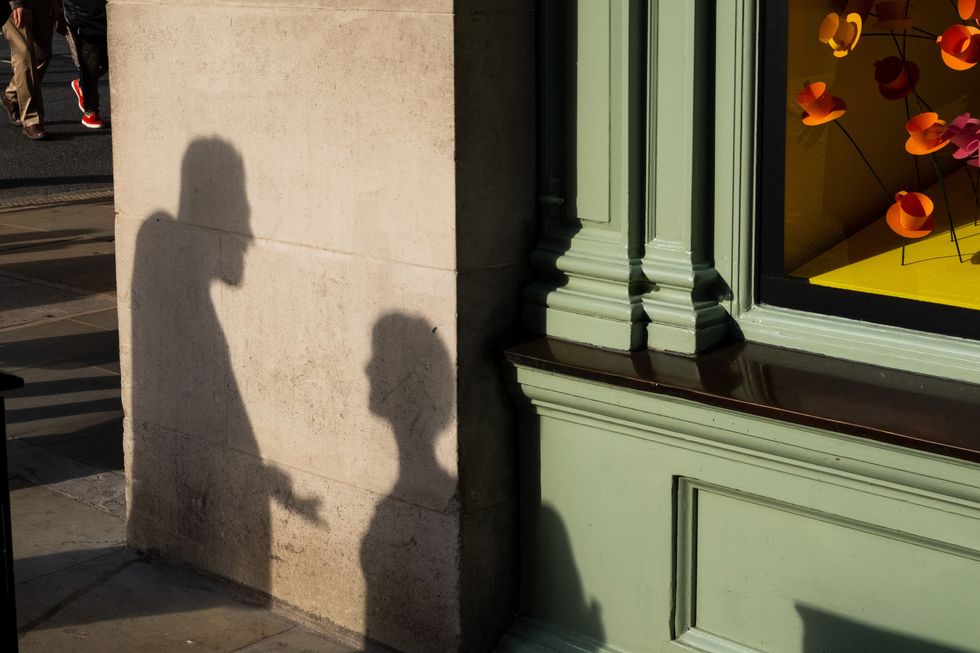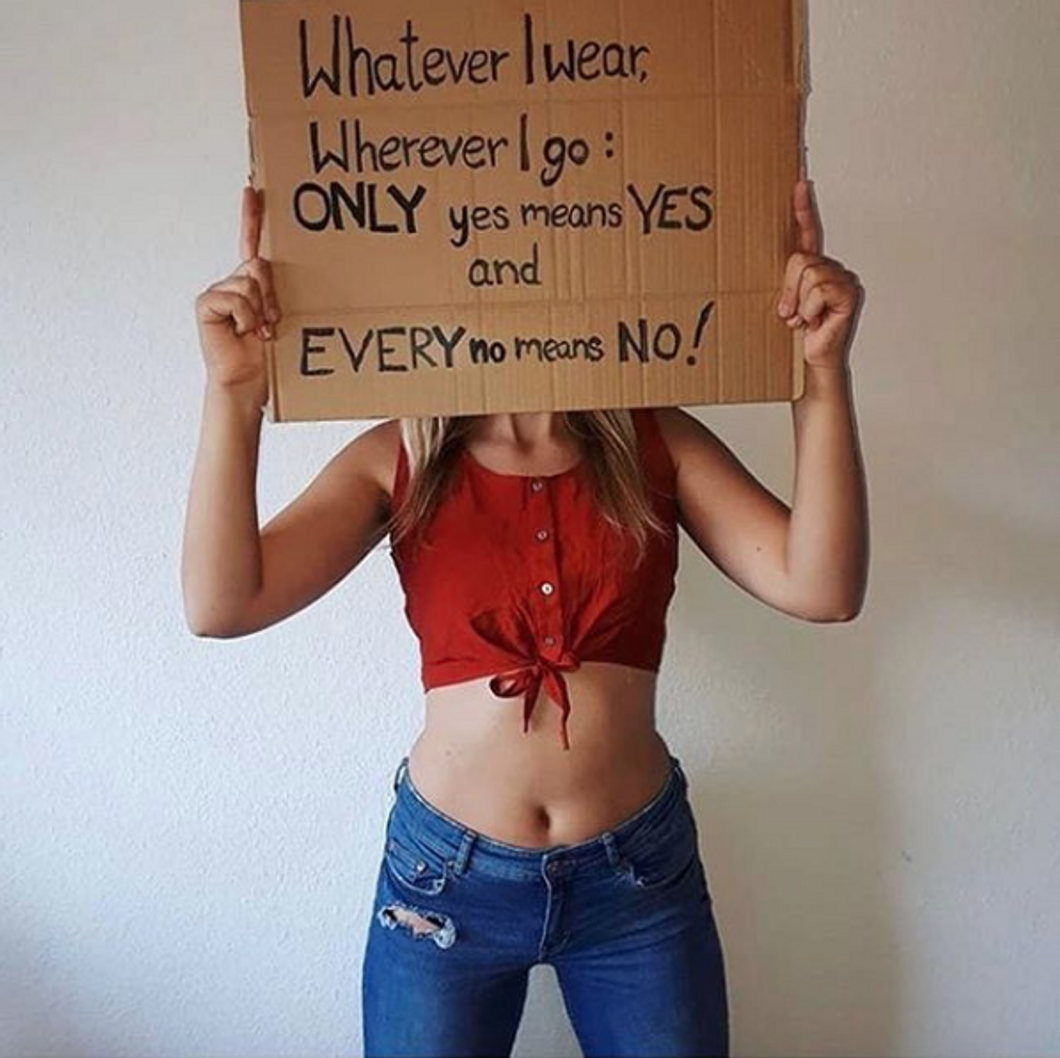Old is the new "new," as if something of age was meant to be reborn or reproduced. What the past is to us is what the present is to the past. A means of living that expresses the hopeful need of a future not yet lived. Back then, the eternal phrase of dissonance, what we find out of style or outdated was natural living at that point in time. The past we look back at was once the present day. It is a miracle that our gaze can be so scrutinizing enough to see farther than the future allows us. Unless it is to be forgotten, misplaced, redacted, or revised, history will show its punctual and preeminent watershed epochs, even if it means rinsing and repeating. It all depends on whose washing the plates.
Some people do their washing with bare hands, using the dish detergent and sponge as their tools to preserve the sheen and service of the porcelain. Some people prefer their excavations with the clinical reassurance of rubber household gloves. Some people leave the discovery to the automation of the dishwasher, never knowing a dirty plate from a clean one.
No matter how we clean, to know the meals that touched such china cannot be savored exactly as they were prepared. The closest we get to tasting the past is through how we intend to eat off these plates.
A feast for the senses is considered an understatement to the Roaring Twenties when compared to the Digital Age of Debauchery. The amount of excess from then until now has held this as habit, which turned it from vice to virtue to finally of value. The more, the merrier, but more of what made you happier?
Carefree innocence, childhood freedoms, and overall indulgence are practices that had their place but can never be the same again. That is not to say it cannot surface ever again; these half-full feelings quickly become half-empty in different ways, time and time again, especially in a dissatisfying sameness that claims to be new or perpetually updated.
Escaping history is out of turn. To escape history's faults is to deny its faults. Embracing history is acknowledging that it exists and is existing. History was and is still history with and without proper record. When memory is not enough, history persists in our dialogues, documentation, and most routinely in our debuts.
John Lennon and Yoko Ono were the pronounced images of hipster culture. Their message of peace was not mass-produced in factories or stores or sold at any monetary value. They possessed true values that transcended the hipster label and commercialism in a capitalistic sense.
Since the counterculture movement of the sixties, the resurgence, more appropriately a poor remnant of it, is found today in ironic fashion and lifestyle choices. The problem with bringing back the past is not always a subtle recurrence.
The assumption is that wearing spectacles larger than your forehead and a matching fedora a size slightly too small is worn for ironic effect, to sport an image that is supposed to reinvent the hipster label and lifestyle. Then you learn people who dress this way consider it a fashion.
All purpose and sincerity of what the term "hipster" represented is now rehashed in a way that masks the wearer's reputation and intention before it is made.
Of course, these superficial and artificial judgments will not taint the pores of an individual who upholds core values.
Someone who has an upkeep of honest character will not have to flout or tout any superiority or justification. This individual is well-adjusted in the sense that his or her confidences are not made out of inflated pride but of a meek, middling, discerning disposition. This person is an old soul.
An old soul is someone who is not popular and deserves to be but accepts the role he or she plays to make the part fix the whole.


























Stop Obsessing Over Celebrities Who DON'T Use Their Power Or Influence For Good
Someone, please explain how the hell lip kits and palettes are going to help children with cleft lips and palates.
I love celebrity news and entertainment as much as the next girl (I actually wanted to be a gossip blogger for a while), but there's a thin line between lightheartedly scrolling through The Shade Room and dedicating hours upon hours of your life to following, liking, and commenting on everything your favorite celeb does. I see why some people fall in love with famous people: they're gorgeous, some are really funny, the majority are talented but most of all, they have the most idealistic lives ever. They get to travel to exotic places whenever they want, buy fancy cars and designer clothes, and get million-dollar gifts for their birthday. Celebrities seem to have it all, but that doesn't mean you should give them your all.
Over the years, I've seen people develop serious obsessions with celebrities. They buy all of their merchandise, make social media fan pages for them, spend thousands of dollars on meet-and-greets (which only last like five minutes, by the way) and will harass, bully, and target anyone who criticizes or challenges their beloved idols. Now I don't think it's wrong to like celebrities or engage with them, but I have to call these people out on their self-destructive behaviors because what they're doing is absolutely disadvantageous to them.
There are two problematic things that occur when fans become obsessed with celebrities:
1) They neglect their own autonomy. and they glorify in their idols (or alternatively, establish autonomy through living through celebrities, who have characteristics they lack within themselves) and
2) They devote their time, money, and energy to people who probably have no idea who they are and are physically incapable of genuinely caring about them.
Reason number one is one of the reasons why we have so many young girls and boys running around acting foolish, or claiming to be from a community/background which they are not. They think it's "cool" and imitate it because their favorite celeb does it. When people neglect their own autonomy, they stop thinking about what they genuinely like and value. Instead, their world becomes focused on what someone else likes and values. It's good to have role models, but people who develop obsessions with celebrities don't see them as role models anymore, they see them as who they want to be, literally, and when you transform into someone else, you leave yourself behind completely.Furthermore, I've been unable to shake the feeling that the influx of social media — and the greater obsession with celebrities it has encouraged — has led to our new age of bandwagoners. Social media has made it easier to follow celebrities' lives and have access to their opinions on certain subjects, which is both good and bad. A lot of people are able to remain unfazed by being overexposed to celebrities and social media personalities, while others become obsessed with doing anything to establish a lifestyle like the famous people they follow. Because of this, we're facing an epidemic of people attention-seeking (or "clout chasing") and going along with any idea and believing anything, simply because someone who has more followers and influence thinks it.
It's quite tragic.
However, reason #2 is most problematic in my opinion, and is the main reason I even wrote this article: most celebs are doing nothing to give back to fans. Yes, they provide great music, acting, entertainment, etc; but, I'm talking about giving back to fans in a way that makes a concrete difference in their lives and community (making us laugh or feel good is great, but that only goes so far and can only do so much).
Let's look at some of the most popular celebrities at the moment.
Kylie Jenner
She has over 100 million followers on Instagram, so clearly, people love her. My only question is why do they love her so much? She's pretty and has allegedly — high-quality makeup (I've never used any products, so I can't vouch for that), but that doesn't call for her to be worshipped and idolized in the manner that she is. It also isn't a valid reason for why some fans go batshit crazy whenever something negative about her is said. Her followers buy her products, follow her every move, and support her endlessly... All for what? In terms of her involvement, she rarely uses her wealth or platform to do anything remotely beneficial. Her only documented instance of philanthropy was donating lip kits to Smile Train.
Yes, lip kits.
Someone, please explain how the hell lip kits are going to help children with cleft lips and palates.
Post Malone
At least Kylie Jenner tried to do something charitable. Post Malone has literally done nothing.
I'm serious, like nothing.
I guess we can count his music and concerts as a way of giving back, but it still doesn't call for the intense stanning and overwhelming support.
Cardi B
Cardi B is by far one of the hottest rappers out right now. Her fan base is huge and they're quite vocal about their undying love for her. #BardiGang, as they're called, is almost as bad as the #Beyhive with how quick they are to drag, bully, and harass anyone who has anything negative to say about the rapstress. They've made dozens of fan pages in her honor and have taken the personal liberty to devote a lot of their time to dispelling rumors about her, doing damage control, etc.
If I didn't know any better, I would think they're being paid by her, or at the very least, that they have some sort of personal relationship with the celeb. But we all know that's not true.
Unlike the other two celebs, Cardi has actually been vocal about not giving back to the community and has only been recorded doing one charitable effort, which was to donate $8000 to the family of Lesandro Guzman-Feliz, a young boy who was brutally stabbed to death in New York City. I'm glad she did something at least but is it enough to warrant extreme idolization?
* * *
Now call me crazy, but it seems like for the amount of money and support that fans spew out to celebrities, that they are getting very little in return.
I don't mean that people shouldn't follow or support their favorite artists, I'm suggesting that they tone it down a bit. It looks absolutely pathetic to pour so much of yourself into someone who doesn't even know that you exist. A person who is benefiting and profiting off of the attention they receive from having a large fanbase, only to not do anything that enriches the lives of that same fanbase, either through philanthropy, social activism, or any other positive means.
Not only that, but superfans — and even just society in general — glorify these people and make it look like we should aspire to be them, but many don't have any outstanding or remarkable characteristics that call for it. Why are some put on a pedestal when they aren't much different from the average person? There are lots of women that are beautiful, so what other great characteristics does Kylie Jenner have that justifies her idolization?
There are tons of amazing rappers out there (many of which are unknown), so what separates Post Malone and Cardi B from the rest. What qualifies them for glorification?
Where are their revolutionary characteristics? The way people devote their lives to these celebrities, you would think they were Jesus and that's exactly the problem. If people are going to put these people on a pedestal, it needs to be for good reasons, not for shallow and simple-minded ones.
If we're going to stan any celebrities, let's glorify Ashton Kutcher, who developed an organization that is helping to save children from sex trafficking. Or we could stan Lebron James, who built a school for urban youth, and Colin Kaepernick, who has donated thousands of dollars to important causes. Hell, we could even stan twerk sensation, Miley Cyrus, who has an organization focused on helping homeless youth.
THESE are celebs who deserve to be put on a pedestal. THESE are celebs that are remarkable, who are talented and who give a fuck about the people who support them.
I'm sick of people being mindless followers and wasting more energy on other people than themselves... especially if those people are so out of touch with reality that they forget they're extremely privileged compared to other people, and that they have the ability to do something amazing with their privilege... if they only tried.